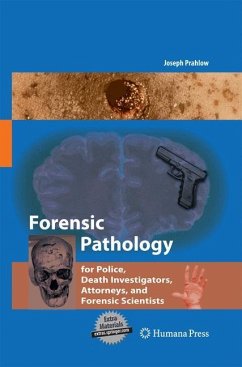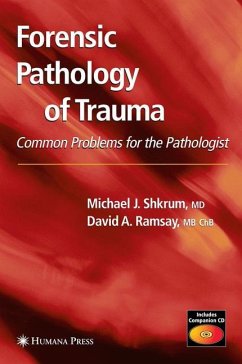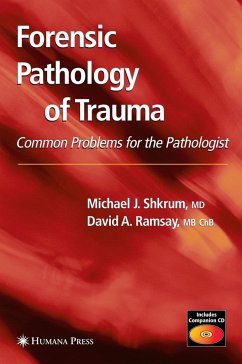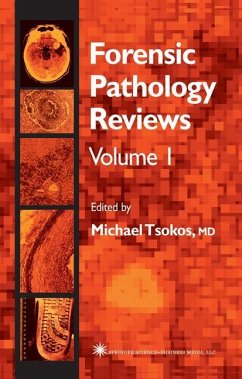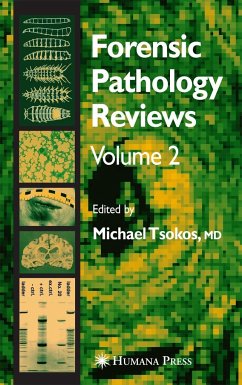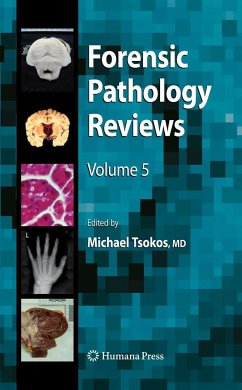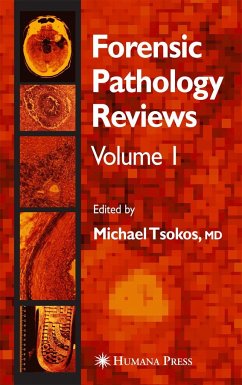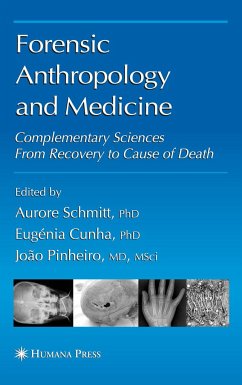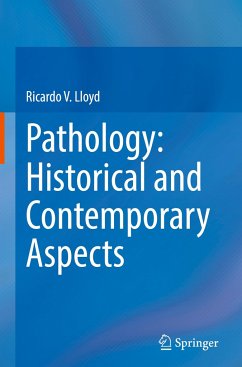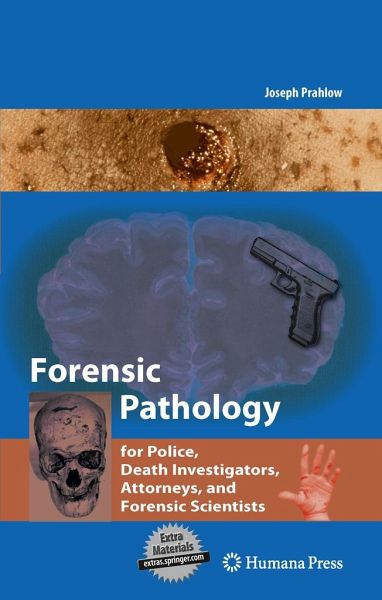
Forensic Pathology for Police, Death Investigators, Attorneys, and Forensic Scientists
Versandkostenfrei!
Versandfertig in 6-10 Tagen
152,99 €
inkl. MwSt.
Weitere Ausgaben:

PAYBACK Punkte
76 °P sammeln!
Forensic Pathology for Police, Death Investigators, Attorneys, and Forensic Scientists is a forensic pathology book specifically written for professionals who interact with forensic pathologists. The book includes sections that address various general topics which are not normally present in the typical forensic pathology text, such as descriptions of medical, pathology and forensic pathology training, basic anatomy and physiology, an overview of other forensic science disciplines, and autopsy performance. Forensic Pathology for Police, Death Investigators, Attorneys, and Forensic Scientists a...
Forensic Pathology for Police, Death Investigators, Attorneys, and Forensic Scientists is a forensic pathology book specifically written for professionals who interact with forensic pathologists. The book includes sections that address various general topics which are not normally present in the typical forensic pathology text, such as descriptions of medical, pathology and forensic pathology training, basic anatomy and physiology, an overview of other forensic science disciplines, and autopsy performance. Forensic Pathology for Police, Death Investigators, Attorneys, and Forensic Scientists also covers classic topics in forensic pathology, including death investigation, death certification, postmortem changes, and the entire range of case types, ranging from natural deaths to drug-related deaths to various types of violent death. The text is written in easy-to-understand language, and is complemented by hundreds of high-quality photographs





